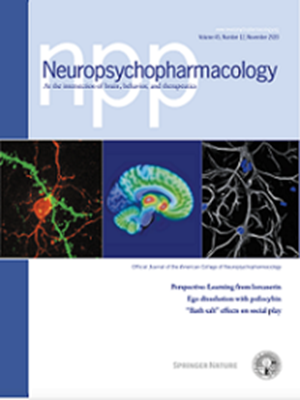精神疾病脑刺激个体化的四个维度:情境、目标、剂量和时机。
IF 6.6
1区 医学
Q1 NEUROSCIENCES
引用次数: 0
摘要
非侵入性脑刺激(NIBS)技术,包括经颅电(tES)和磁(TMS)刺激,已经成为各种精神疾病的有前途的干预措施。经fda批准的经颅磁刺激方案在抑郁症、强迫症和尼古丁使用障碍方面提供了有意义的改善。然而,治疗效果在个体之间仍然不一致,一个相关的原因是基于个体因素的干预效果变异性。最近,FDA批准了一项新的TMS方案,该方案包括基于fmri的个体化靶向治疗,以及其他一些修改,据报道,这些修改比以前的“一刀切”方案的效果更高,这进一步加强了开发个性化干预措施的努力。本文讨论了个性化tES/TMS方案以提高治疗效果的维度。我们提出了一种多方面的方法来个性化NIBS,考虑四个层面:(1)背景,(2)目标,(3)剂量,(4)时机。通过解决个体之间和个体内部的差异,我们强调了使用个性化脑刺激治疗精神疾病的精准医学途径。尽管存在挑战和局限性,但这种方法鼓励更广泛、更系统地采用个性化脑刺激技术来改善临床结果。本文章由计算机程序翻译,如有差异,请以英文原文为准。

Four dimensions of individualization in brain stimulation for psychiatric disorders: context, target, dose, and timing
Non-invasive Brain Stimulation (NIBS) technologies, including transcranial electrical (tES) and magnetic (TMS) stimulation, have emerged as promising interventions for various psychiatric disorders. FDA-approved TMS protocols in depression, OCD and nicotine use disorder provide a meaningful improvement. Treatment efficacy however remains inconsistent across individuals, and one relevant reason is intervention effect variability based on individual factors. There is a growing effort to develop individualized interventions, reinforced recently by FDA approval of a new TMS protocol that includes individualized fMRI-based targeting along with other modifications with higher reported effect size than previous “one size fits all” protocols. This paper discusses the dimensions for individualizing tES/TMS protocols to enhance therapeutic efficacy. We propose a multifaceted approach to personalizing NIBS, considering four levels: (1) context, (2) target, (3) dose, and (4) timing. By addressing inter- and intra-individual variability, we highlight a path toward precision medicine using individualized Brain Stimulation to treat psychiatric diseases. Despite challenges and limitations, this approach encourages broader and more systematic adoption of personalized Brain Stimulation techniques to improve clinical outcomes.
求助全文
通过发布文献求助,成功后即可免费获取论文全文。
去求助
来源期刊

Neuropsychopharmacology
医学-精神病学
CiteScore
15.00
自引率
2.60%
发文量
240
审稿时长
2 months
期刊介绍:
Neuropsychopharmacology is a reputable international scientific journal that serves as the official publication of the American College of Neuropsychopharmacology (ACNP). The journal's primary focus is on research that enhances our knowledge of the brain and behavior, with a particular emphasis on the molecular, cellular, physiological, and psychological aspects of substances that affect the central nervous system (CNS). It also aims to identify new molecular targets for the development of future drugs.
The journal prioritizes original research reports, but it also welcomes mini-reviews and perspectives, which are often solicited by the editorial office. These types of articles provide valuable insights and syntheses of current research trends and future directions in the field of neuroscience and pharmacology.
 求助内容:
求助内容: 应助结果提醒方式:
应助结果提醒方式:


